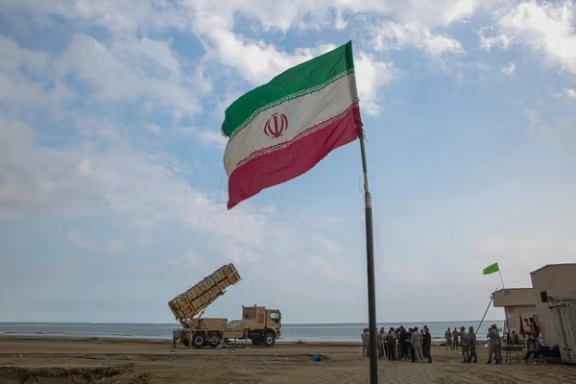“The most important objective is starting on building the relationship between Syria and the United States, because in the past 100 years, it wasn’t a very good relationship,” he said in an interview published on Tuesday.
Al-Sharaa said his country is in talks with Israel with support from President Donald Trump and other international partners.
“Israel has always said it has concerns about Syria because it is afraid of the threats that the Iranian militias and Hezbollah represent,” he said. “We are the ones who expelled those forces out of Syria.”
He said Syria’s negotiations with Israel have made progress. “We are engaged in direct negotiations with Israel, and we have gone a good distance on the way to reach an agreement,” al-Sharaa said. “But to reach a final agreement, Israel should withdraw to their pre-Dec. 8 borders.”
“The United States is with us in these negotiations,” he said. “Today, we found that Mr. Trump supports our perspective as well, and he will push as quickly as possible in order to reach a solution for this.”
On the idea of creating a demilitarized zone south of Damascus, al-Sharaa said, “To talk about an entire region demilitarized, it will be difficult, because if there is any kind of chaos, who will protect it? And at the end of the day, this is Syrian territory, and Syria should have the freedom of dealing with their own territory.”
Al-Sharaa seeks pragmatic ties with Russia
Turning to Russia, al-Sharaa said Syria fought Moscow’s forces for a decade but now seeks a working relationship with it as a permanent member of the UN Security Council. “We need Russia because it’s a permanent member of the Security Council,” he said. “We need their vote to be on our side in some issues, and we have strategic interests with them.”
He added that the issue of former president Bashar al-Assad, who is in Russia, remains unresolved. “The issue of Bashar al-Assad is troublesome for Russia, and our relationship with them — we’re still in the beginning,” he said. “We will preserve our rights as Syrians to call for bringing Assad to justice.”
His remarks came as the United States suspended most sanctions on Syria for 180 days while keeping curbs on business tied to Iran and Russia, the Treasury said on Monday. The decision extends partial relief under the Caesar Act but maintains restrictions on transactions involving the two governments or their goods, technology or financing.
The step followed al-Sharaa’s visit to Washington, the first by a Syrian head of state, where he met Trump for talks on rebuilding ties. Washington removed al-Sharaa from its list of Specially Designated Global Terrorists before the visit, according to US officials.


















